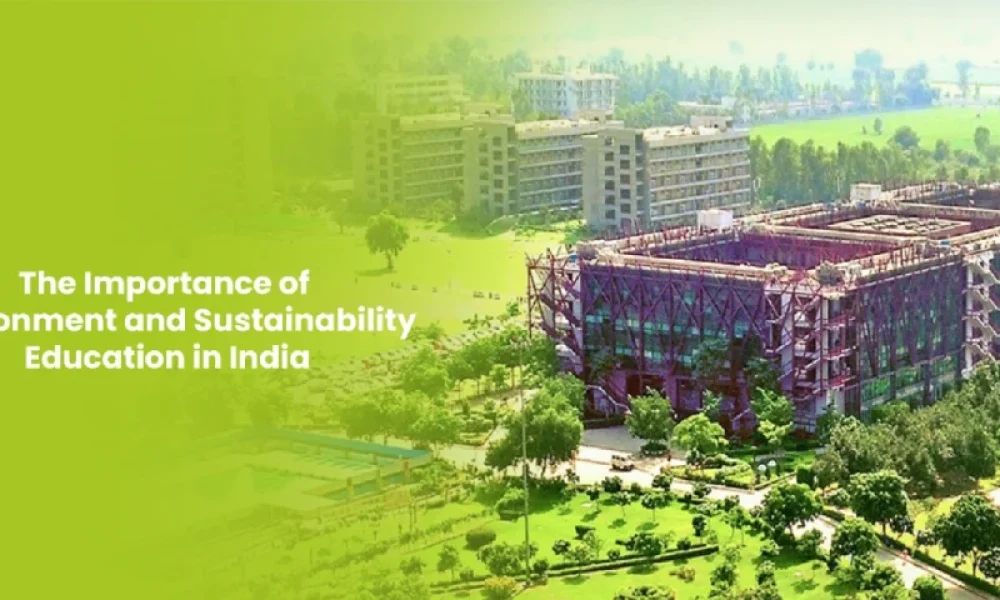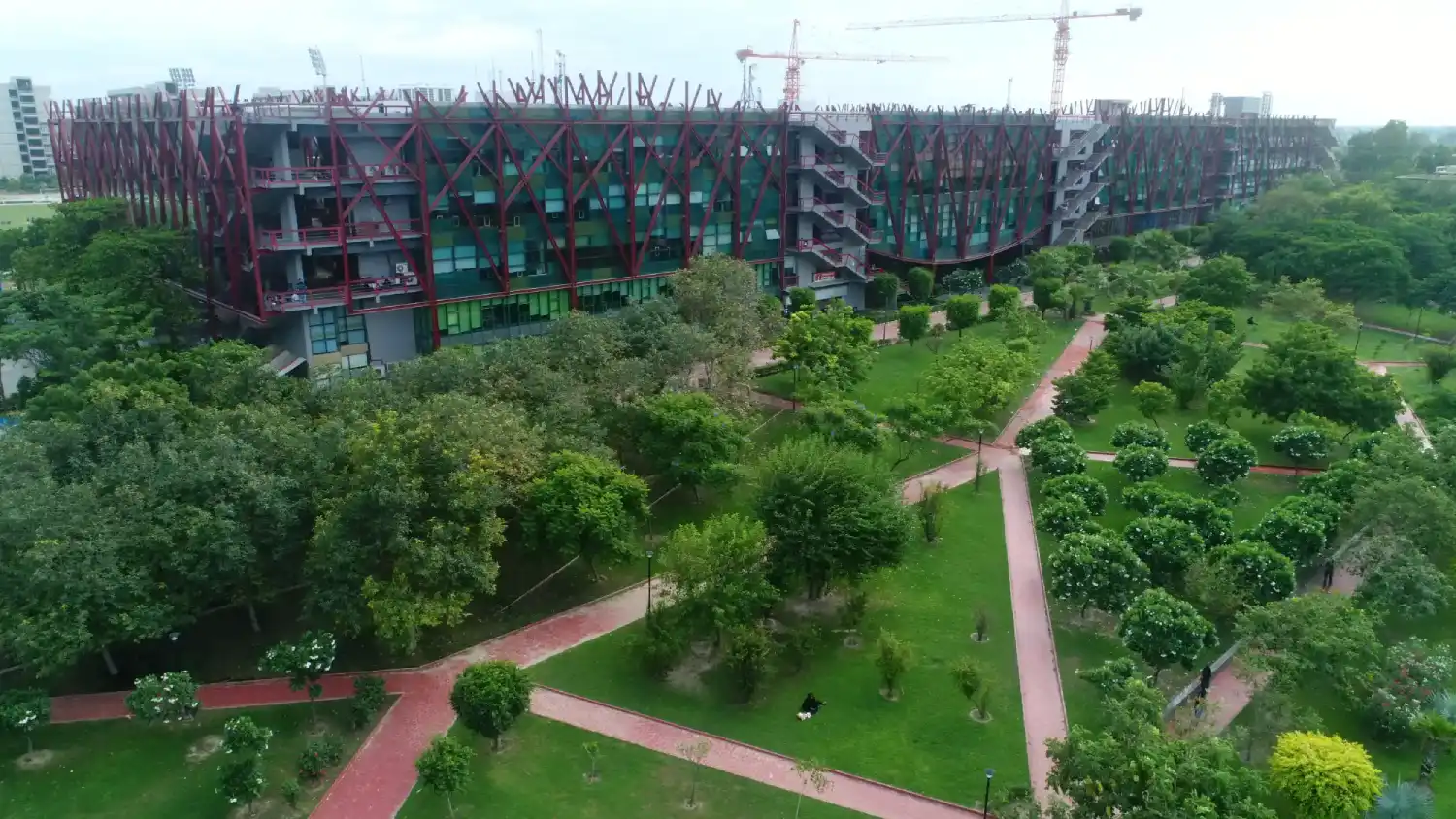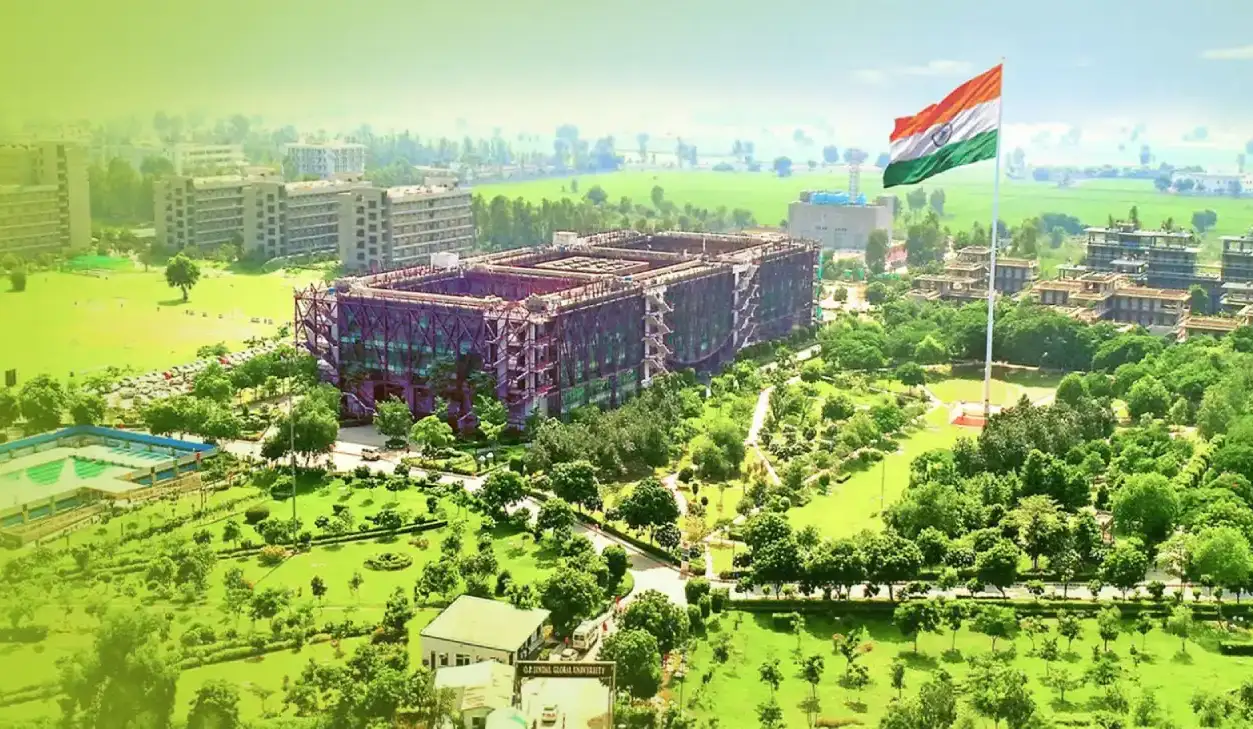India is at a crossroads in a world where environmental challenges are escalating rapidly. The future of the country will depend on how well it establishes the balance between development and environmental conservation. The need for sustainable practices becomes even more crucial as the nation grows and modernizes. With a population of over 1.4 billion, India faces a unique set of challenges, ranging from severe air pollution to water scarcity and climate change impacts.
It is in this context that environmental education and sustainable development have gained much importance. For students, it is not just a career choice but a way to make a meaningful impact on the future of the planet while pursuing degrees such as a B.A. (Hons.) in Environment and Sustainable Development or a B.Sc. in Environment and Sustainable Development. Let’s take a quick dive into the need for environmental education, the prospects for graduates in this field, and why these degrees are pivotal for the future of India.
The Future of Sustainability in India
India’s future is intertwined with its commitment to sustainability. As one of the world’s most populous countries, India faces unique environmental challenges, including high levels of pollution, over-exploitation of natural resources, and climate vulnerability. These issues are exacerbated by rapid industrialisation and urbanization. However, India is also emerging as a global leader in renewable energy and sustainable development.
Renewable Energy Initiatives
India has made impressive strides in renewable energy, with ambitious targets set for the coming years. By 2030, the nation aims to achieve 450 GW of renewable energy capacity, with a focus on solar and wind power. As of early 2024, India ranks third globally in renewable energy capacity, reflecting the country’s commitment to reducing its carbon footprint. The government’s initiatives, such as the National Solar Mission and the Smart City Mission, are key drivers of this progress, contributing to green job creation and promoting sustainable urban development.
Green Job Market Growth
India’s green job market is expected to grow exponentially over the next few decades. It is projected that approximately 35 million green jobs will be created by 2047, thanks to sectors such as renewable energy, sustainable agriculture, waste management, and green construction. As industries pivot towards sustainability, the demand for skilled professionals in these fields will rise, opening a wide array of opportunities for graduates with the right qualifications, including those with a B.ScEnvironment and Sustainable Development or a B.A. (Hons.)Environment and Sustainable Development.
The Need for Environmental Education
The need for environmental education in India has never been more urgent. The nation’s rapid urbanization, industrialisation, and population growth have strained the environment to its limits, making it crucial to educate the next generation of professionals in the science of sustainability.
Environmental Degradation
Environmental degradation in India is a pressing issue, with air pollution reaching hazardous levels in cities like Delhi, water scarcity affecting over 600 million people, and soil erosion threatening agricultural productivity. These environmental issues not only harm public health but also place an immense strain on the country’s economy. Effective education in sustainability is essential to train the workforce with the expertise needed to address these challenges.
Climate Change Adaptation
India is highly vulnerable to the effects of climate change. Increased temperatures, erratic weather patterns, and natural disasters like floods and droughts are expected to intensify over the coming decades. The nation needs professionals capable of developing and implementing strategies for climate change adaptation. An education in Environment and Sustainable Development programmes in India provides students with the knowledge to tackle these challenges head-on.
Achieving Sustainable Development Goals
India is committed to achieving the United Nations’ 17 Sustainable Development Goals (SDGs) by 2030. These goals encompass a wide range of issues, including poverty alleviation, clean water access, gender equality, and climate action. Educating professionals in sustainability is vital for India to make progress on these goals, especially in the areas of environmental protection, resource management, and climate resilience.
Prospects for Graduates in Environment and Sustainability
Graduates with a degree in Environment and Sustainability have a wide range of career opportunities available to them. These roles are critical for driving the sustainable development agenda both within India and globally.
Policy Development
Graduates can contribute to policy development by working with government agencies, think tanks, or non-governmental organizations (NGOs). They can help design policies that promote sustainable resource management, environmental protection, and climate resilience. This may involve working on projects related to pollution control, waste management, and biodiversity conservation.
Research and Academia
There is an increasing demand for researchers to explore new ways to address environmental challenges. Graduates can pursue careers in research, contributing valuable insights into areas such as climate science, renewable energy, and ecosystem restoration. Many universities also offer opportunities for academics to engage in teaching and research, contributing to the development of future environmental leaders.
Corporate Sustainability
With more companies placing emphasis on corporate social responsibility (CSR), there is a growing demand for professionals who can help businesses integrate sustainability into their operations. Graduates can work in corporate sustainability departments, helping companies reduce their environmental impact through energy efficiency, waste reduction, and sustainable supply chains.
Community Engagement
Sustainability is not just about policy; it’s also about practical solutions that can be implemented at the community level. Graduates can work directly with communities to promote sustainable practices in agriculture, waste management, water conservation, and energy use. This role often involves educating local populations, fostering awareness, and implementing on-the-ground initiatives.
Why a Bachelor’s Degree in Environment and Sustainability is the Best Choice
Comprehensive Skill Development
A degree in Environment and Sustainability provides students with a comprehensive skill set that prepares them for a variety of roles in the environmental sector. The curriculum typically integrates knowledge from multiple disciplines, including science, economics, policy, and social studies. This interdisciplinary approach ensures that graduates are well-equipped to address the complex environmental challenges facing India and the world.
Practical Experience
Many Environmental and Sustainable Development programmes in India include fieldwork or internships, which allow students to gain practical experience in real-world environmental issues. This hands-on experience is invaluable, as it helps students apply theoretical knowledge to actual sustainability challenges. It also offers students the opportunity to network with professionals in the field, which can be beneficial when seeking employment after graduation.
Alignment with Global Trends
As the world increasingly shifts toward sustainability, graduates with a degree in Environment and Sustainability are well-positioned to thrive in the global job market. The International Labour Organization predicts that millions of new green jobs will be created globally in the coming decades. Students graduating from top universities in India will be prepared to compete for these opportunities, both within India and abroad.
Contribution to National Goals
By pursuing a degree in Environment and Sustainability, students are not just preparing for a career; they are also contributing to India’s broader environmental and social goals. Graduates play a vital role in promoting environmental stewardship, supporting sustainable development, and enhancing the country’s resilience to climate change. This makes their work not only professionally rewarding but also personally fulfilling.
Final Takeaway
India’s future depends on its ability to adopt sustainable practices and educate the next generation of environmental leaders. A bachelor’s degree in Environment and Sustainable Development provides students with the adequate knowledge required to address the pressing environmental issues facing the country. With the continued growth of green jobs and strong government support for sustainable initiatives, this field presents exciting career prospects for the future. As India continues its journey toward sustainability, those with the right education will be at the forefront of this global movement.
India’s first undergraduate school dedicated to excellence and a focus on sustainability, the Jindal School of Environment & Sustainability (JSES), is a pioneer in environmental education. The school brings together an esteemed faculty from around the world to foster a global perspective on environmental challenges. As JSES looks toward the future, it aims to offer postgraduate programmes in collaboration with top-ranked universities worldwide, ensuring that India remains a leader in environmental education and sustainability.
Apply Now
References:
[1] https://cleartax.in/s/sustainable-development-in-india
[2] https://energytracker.asia/environmental-issues-in-india-and-solutions/
[3] https://www.nextias.com/blog/environmental-initiatives/
[5] https://earth5r.org/the-evolving-green-job-sector-of-india/
[6] https://earth5r.org/environmental-sustainable-development-courses-mumbai/
[7] https://www.rau.ac.uk/courses/undergraduate/bsc-ba-environment-sustainability
[8] https://azimpremjiuniversity.edu.in/programmes/bsc-in-environmental-science-and-sustainability
[9] https://www.worldbank.org/en/news/feature/2011/09/22/environmental-management-india
[11] https://jgu.edu.in/blog/2024/03/01/why-study-environmental-studies/






